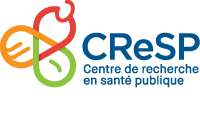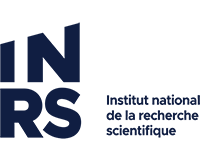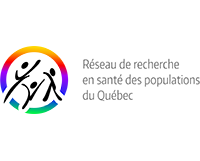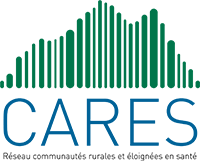Rendez-vous recherche et innovation en santé publique
Event program
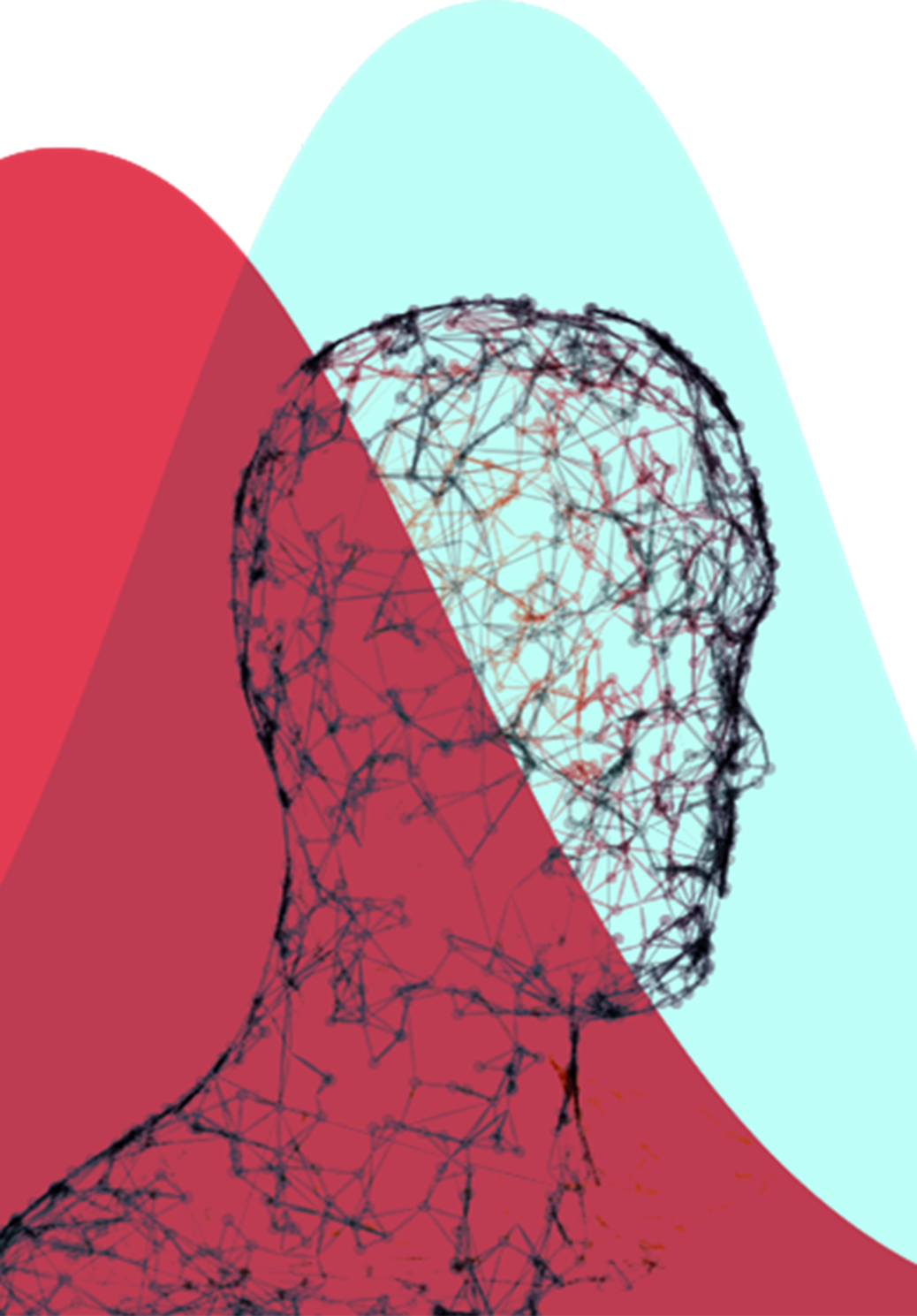
The first edition of the Rendez-vous recherche et innovation en santé publique was born of the desire to strengthen the synergy between public health research and practice.
The transformation of society is accelerating under the impact of several major trends, bringing with it new challenges and opportunities for public health. New data, knowledge, methods, approaches and tools are needed to better address current and future issues. More than ever, partners from diverse backgrounds will need to collaborate in their development.
This event is presented by the Institut national de santé publique du Québec and its university partners. Special thanks go to the École de santé publique de l'Université de Montréal and the Centre de recherche en santé publique for hosting the event, and to the Institut de la santé publique et des populations for making the first part available online. Through short and accessible presentations, speakers will share innovative and inspiring ideas to stimulate reflection on our approaches and practices in public health. In the second half of the event, on-site participants will continue their discussions with the speakers.
We hope this first meeting will inspire you and, who knows, pave the way for new collaborations. We wish you a wonderful event!
The Steering Committee
Schedule
1:00 pm to 1:15 pm (in-person and online)
Welcoming remarks
1:15 pm to 3:30 pm (in-person and online)
Get inspired! - Series of nine presentations
3:30 p.m. to 3:50 p.m. (in-person)
Break
3:50 p.m. to 4:30 p.m. (in-person)
Share, explore, collaborate! - Discussions with speakers
4:30 p.m. to 5 p.m. (in person)
Closing remarks
At the end of the event, a cocktail will be offered to guests who wish to continue the discussions.
Simultaneous French-English and English-French interpretation according to language of presentation
Registration
The first part of the activity, from 1:00 p.m. to 3:30 p.m., will take place in hybrid mode (in person and online). The second part of the activity, from 3:30 p.m. to 5 p.m., will be exclusively in person.
In person - At capacity
Write to us at [email protected] if you wish to be added to the waiting list.
Online - Registration is free and open to all!
Participants must register by May 26, 2025.
Location
For in-person participants only
The event will take place at the École de santé Publique de l’Université de Montréal:
7101 avenue du Parc, Montreal (third floor).
Paper documentation
No paper documentation will be provided during the event. PDF schedule available for download.
Training recognition
This activity is not recognized for continuing education purposes.
Overview of presentations
Community approaches in public health: Let’s talk about power not assets
For decades, action with the most marginalised and disadvantaged communities has been central to policies aiming to achieving greater social and health equity globally, nationally and locally. Yet evidence is accumulating that community approaches in public health have limited success and some may actually do harm. Why is this the case? Findings from an evaluation of the English Big Local Community Empowerment programme point to the need for a shift from a focus on how community assets can be utilised to change lifestyles and behaviours to how community power can be developed and supported to change the fundamental structural drivers of social and health inequities.
Jennie Popay is Distinguished Professor of Sociology and Public Health at Lancaster University in the UK. She is a Fellow of the Academy of Social Sciences UK, a Fellow through distinction pf the UK Faculty of Public Health and received the British Sociology Association distinguished service medal in 2022. She is co-lead for a major programme of research on health inequalities within the English School for Public Health Research. Her research focuses on social determinants of health equity, lay knowledge, and the evaluation of community/place-based interventions/policies.
A History of Violence: The Legacy of Environmental Racism in Canada - Presentation cancelled
In this talk, Dr. Ingrid Waldron discusses her work on environmental racism since 2012, when she founded the Environmental Noxiousness, Racial Inequities and Community Health Project. Environmental racism can be defined as racial discrimination in the disproportionate siting of environmentally hazardous projects in Indigenous, Black and other racialized communities. She provides cases of environmental racism across Canada and concludes with a discussion on the multiple ways she has been addressing the issue.
Ingrid Waldron is Professor and HOPE Chair in Peace and Health in the Global Peace and Social Justice Program at McMaster University. She co-developed the first federal private members environmental justice bill (Bill C-226), which became Canada’s first environmental justice law on June 20. 2024. She is the author of There’s Something in the Water: Environmental Racism in Indigenous and Black Communities, which was turned into a 2020 Netflix documentary of the same name.
Policy, impact, and evidence: a virtuous cycle
Public health policy should be informed by research evidence; however, there is often a disconnect between policy and research practice. Methods from impact evaluation can be applied retrospectively to learn about the implications of public health policies, as well as prospectively to evaluate new reforms. A more virtuous cycle between policy, impact, and evidence can be achieved through effective partnerships between policymakers, researchers, and the public.
Arijit Nandi is Associate Professor at McGill University jointly appointed to the Department of Equity, Ethics and Policy and the Department of Epidemiology, Biostatistics and Occupational Health. His research examines macro-level determinants of population health in a global context. His primary interests are in using experimental and quasi-experimental designs to evaluate the impact of policies and programs on health and health inequalities. He is a founding member of the McGill Public Policy & Population Health Observatory (3PO).
Improving tick-borne disease prevention with the “One Health” approach
Climate change and other environmental disturbances are creating conditions conducive to the emergence of zoonoses in Canada, including tick-borne diseases. Dealing with this issue is complex, as it concerns both the health of human and animal populations, and the conservation of natural ecosystems. This presentation will address the need to adopt innovative, integrated approaches that apply the “One Health” approach, in order to combat these problems.
Cécile Aenishaenslin is Professor at the Faculté de médecine vétérinaire at the Université de Montréal and a Researcher with the Groupe de recherche en épidémiologie des zoonoses et santé publique and the Centre de recherche en santé publique. Her research program focuses on the development and evaluation of interventions that apply a “One Health” approach to the prevention and control of zoonotic diseases. She leads the PARCS en Santé project, which focuses on the prevention of tick-borne diseases in the context of climate and anthropogenic change.
When the arts reveal public health
This presentation explores the potential of arts-based research methods to enrich public health research by giving a powerful voice to communities. By directly involving participants, these artistic approaches capture health experiences that are often invisible or taboo, facilitate dialogue and offer unique perspectives on complex issues such as inequalities, mental well-being and the social determinants of health.
Olivier Ferlatte is Professor at the École de santé publique de l’Université de Montréal and a Researcher at the Centre de recherche en santé publique. He reinvents public health research with an artistic twist. Collaborating with the 2S/LGBTQIA+ communities, he challenges conventions by mobilizing arts-inspired approaches to transform knowledge. Convinced that research must be inclusive and accessible, he is committed to making research a tool for social transformation.
Using mixed studies to guide public policies: the example of cannabis
Mixed-method and interdisciplinary studies are essential for understanding the impact of changes in cannabis legislation. They include the combination of quantitative methods (such as surveys and statistical analyses) and qualitative methods (such as interviews or focus groups) to explore the perceptions, practices and impacts of these policies on populations. The participation of health experts ensures a more in-depth analysis of the effects on public health, and enables informed recommendations to be made for the development and improvement of public policies.
José Ignacio Nazif-Muñoz is Associate Professor in the Addiction Studies and Research Programs at the Faculté de médecine et des sciences de la santé de l’Université de Sherbrooke. He received his bachelor's degree in sociology (1999) from the Universidad de Chile and his doctorate in sociology (2016) from McGill University. He completed postdoctoral training at McGill University's Institute of Health and Policy (2017) and Harvard University's T.H. Chan School of Public Health (2019). His main research interests focus on understanding the interplay between the diffusion, design and implementation of public policies (including the regulation of alcohol and cannabis use) on vulnerable populations.
Promising interventions for intimate partner violence among adolescents
This presentation addresses a global public health issue of concern to Quebec: intimate partner violence among adolescents. A growing body of research shows that adolescents living in vulnerable contexts (e.g. racism, poverty, marginalization, etc.) are more likely to experience and use violence in their relationships. Drawing on research on domestic violence conducted in Montréal-Nord and on lessons learned from intersectoral collaboration between different actors, we discuss territorial and culturally sensitive approaches that are less developed to date and that show promise in terms of their impact on the social determinants of health and on the structural and environmental factors of this problem.
Tatiana Sanhueza Morales is Researcher in Residence at the Centre de recherche et partage des savoirs Interactions, Associate Professor at the École nationale d’administration publique and Assistant Professor at the University of Concepción, Chile. Her research focuses on violence in intimate relationships, in particular the experiences of adolescents that can affect their relational pathways and identity issues (gender, class, generation, migration, etc.). She is interested in social responses to this issue, with a focus on improving community responses through cross-sectoral collaborative efforts.
A new way of thinking about the fight against opportunistic pathogens that are multi-resistant to antibiotics in hospitals
The fight against nosocomial infections is a major public health issue. This problem is associated with the sink environment as a reservoir of opportunistic pathogens in hospitals. When ecologically characterizing opportunistic pathogens in intensive care units, we identified a few sinks that were exceptionally devoid of pathogens, but instead colonized by an antagonistic microbial population. This suggests a new control strategy that would reduce the risk of infection.
Eric Déziel is Professor-Researcher in microbiology and biotechnology at the Centre Armand-Frappier Santé Biotechnologie de l’Institut national de la recherche scientifique. Trained in environmental microbiology and microbial pathogenesis, he is interested in microorganisms in their natural environment and the means they deploy to survive and cause infections. His research focuses on opportunistic pathogens and aims to gain a better understanding of their social behaviors, such as intercellular communication. He is also looking for alternatives to antibiotics.
Culinary medicine: a pedagogical approach to alternative care
Culinary medicine is an innovative approach that combines medical and nutritional evidence with the culinary arts as an intervention tool, making learning practical and engaging. It goes beyond the transmission of knowledge by activating it, transforming latent knowledge into concrete, operational action. By bridging the gap between theory and practice, this discipline strengthens the ability to act and promotes food empowerment and healthy culinary habits, essential to restoring and maintaining health and well-being.
Michel Lucas is a Doctor in nutritional epidemiology, a Certified Chef and an internationally recognized expert in nutrition and culinary medicine. A full Professor in the Département de médecine sociale et préventive de l’Université Laval and a Researcher at CHU de Québec, he boasts an exceptional 30-year career and a unique perspective: bachelor's degree in nutrition, master's degree in community health, doctorate in epidemiology (Université Laval), postdoctorate in nutritional epidemiology with Dr. Walter Willet (Harvard T.H. Chan School of Public Health) and chef diploma (École hôtelière de la Capitale).
Committees
Steering Committee
The committee determines the event's major orientations and program.
- Eric Litvak, Institut national de santé publique du Québec
- Michèle Bouchard, École de santé publique de l’Université de Montréal
- Louise Potvin, Centre de recherche en santé publique
- Bahar Kasaai, Institut de la santé publique et des populations
- Maude Laberge, Université Laval
- Mylaine Breton, Université de Sherbrooke
- Gilles Paradis, Université McGill
- Marianne Mathis, Institut national de la recherche scientifique
- Nassera Touati, École nationale d’administration publique
- Carole Clavier, Réseau de recherche en santé des populations du Québec
- Cathy Vaillancourt, Regroupement intersectoriel de recherche en santé de l’Université du Québec/CommunAutés Rurales et Éloignées en Santé
Organizing Committee
The organizing committee oversees the organization and smooth running of the event.
- Martine Isabelle, Institut national de santé publique du Québec
- Chantal Huot, École de santé publique de l’Université de Montréal
- Mireille Simard, Institut national de santé publique du Québec
We would also like to thank Ali Ben Charif, Marion Viau and Jane Ferland.
This event is presented by the Institut national de santé publique du Québec and its university partners. Special thanks to the École de santé publique de l'Université de Montréal and the Centre de recherche en santé publique for hosting the event, and to the Institut de la santé publique et des populations for making the first part available online.

